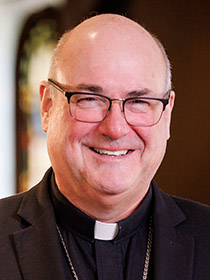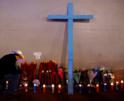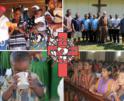
Faith
Her death did not lessen the appeal of the Christian faith. Instead, many, that day, asked the first questions that would lead them to the faith.

Henning
The popular Ridley Scott film, "Gladiator," attracted a great deal of attention back in the year 2000 when it was released. The ads for the film had a dramatic voiceover about "a gladiator who defied an emperor." Of course, the film was fictional. It may have made for an entertaining movie, but there was no great hero named Maximus who defeated a corrupt emperor in the arena.
As the popular saying reminds us, truth is often stranger than fiction. There was a person who defied the might of the Roman Empire, but it was no great warrior; it was a young Christian girl named Agnes. Almost 300 years after Christ, Agnes was born into a Christian family in Rome. As an adolescent, she was denounced as a Christian, likely by a spurned suitor. The emperor at the time, Diocletian, ordered one of the most violent and widespread persecutions of Christians, and young Agnes was caught up in his reign of terror.
She was beheaded at a race track in the heart of Rome on Jan. 21, 304. Her tormentors hoped that her brutal murder would frighten recalcitrant Christians and lessen the appeal of the faith to the pagans of the time. Their plan failed utterly.
As she was born to a prominent family, young Agnes had been offered the opportunity to recant her faith. When she refused and was arrested, her frightened family pleaded with her to deny Christ and save her young life. When even that strategy failed, the power of the Roman State was unleashed upon Agnes. They tormented and terrorized her in prison, dragged her to a brothel, and threatened her life. When all the attempts to command and intimidate her failed, she was sentenced to death. This vast empire, with all its violence and brutality, brought a 13- or 14-year-old girl to a "circus" or race track before thousands of Romans there for the entertainments. Her death would be another spectacle for the baying crowd.
Perhaps they hoped that Agnes would finally relent when faced with the crowd and the terror. Instead, her courage and steadfast faith shamed the very warriors who dragged her to the arena. Having tried every way without success to force this young girl to submit, they finally beheaded her. And then something unexpected happened. The crowd ceased its baying. How could they make sense of this young girl, so vulnerable and yet so unafraid of the might of their emperor? Her death did not lessen the appeal of the Christian faith. Instead, many, that day, asked the first questions that would lead them to the faith. The memory of Agnes's courageous witness to Christ stayed with the Romans and became an increasingly powerful draw to the faith. Along with other early Martyrs, Agnes's blood "watered" the Church in the heart of the empire that sought to eradicate it.
Agnes's feast is commemorated by the Church each Jan. 21, as it has been for more than 1,700 years. Her witness lives in the Church of Rome today. The site of the track where she died is now the Piazza Navona, a beautiful open space centered on Agnes's church. Her tomb, still venerated by Roman Christians, is located in a beautiful little Basilica of St. Agnes at catacombs just outside the city walls on the Via Nomentana. As a student in Rome, I liked to bicycle to that church to pray and to visit her grave. It reminded me of the cost of discipleship and the power of Christ. His power was never about violence or intimidation. His power, the power of God, was and is love. Agnes trusted in Him, and no earthly power could deter her. She has given Christian believers the gift of her young faith. May her witness continue to bring young people and all people to the heart of Christ. St. Agnes of Rome, pray for us!
- Archbishop Richard G. Henning is the Archbishop of Boston
Recent articles in the Faith & Family section
-
Holding onto hopeJaymie Stuart Wolfe
-
Praying with the PsalmsFather Robert M. O'Grady
-
AgnesArchbishop Richard G. Henning
-
The Pontifical Mission Societies -- The Mainstay of MissionariesMaureen Crowley Heil
-
In the weddingScott Hahn























